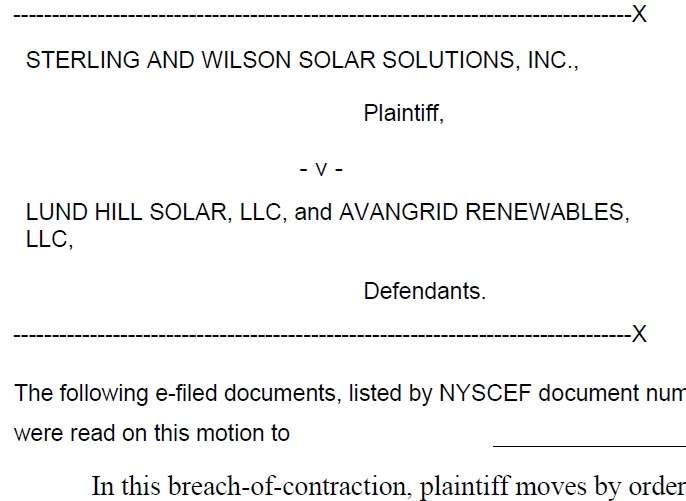The Volokh Conspiracy
Mostly law professors | Sometimes contrarian | Often libertarian | Always independent
Contraction Contraction

Sounds like the author wanted to write "breach-of-contract action," but inadvertently contracted it. A search finds about ten other opinions that speak of "breach of contraction," usually just for "breach of contract" but in one instance likewise seeming to refer to a breach of contract action.
Editor's Note: We invite comments and request that they be civil and on-topic. We do not moderate or assume any responsibility for comments, which are owned by the readers who post them. Comments do not represent the views of Reason.com or Reason Foundation. We reserve the right to delete any comment for any reason at any time. Comments may only be edited within 5 minutes of posting. Report abuses.
Please to post comments


Autocorrect at your own risk...
Back to stenographers and typists!!!
No.
Turn off autocorrect and then --when you are done -- click on "check spelling" and MANUALLY authorize (or not) each change.
"Conjunction Junction, what's your function . . ."
He breached a contraction? You’re kiddin.’ Say it ain’t so!
Its so.
I think it's a French word: contr'action.
A breach of contraction? Is that when you split it into two words (e.g., "you're" converted to "you are")?
Always proofread. You rely on autocorrect at your own risk.
Many many years ago, I worked at a company with the first practical personal computer for stenographers, which translated shorthand (not languages!) for mostly court reporters. If faced with a two-one syllable choice and a one-two syllable choice, it always chose the longest first word.
One reporter we heard of was not much for proofreading. It came from a computer! It was perfect! So when the judge said, "I'd like to have your input on this question" and saw "I'd like to have urine put on this question", he was not pleased.
Every new AI-hallucination of fake citations reminds me of this. To err is human, but to really foul things up takes a computer.
The State of Maine considers motor vehicles built before 1915 (?) to be "Horseless Carriages."
Well when the Year 2000 model vehicles (including heavy trucks) some quite upset bankers and lease agents found that they held title to a "Horseless Carriage." Apparently no one in Augusta noticed this when they were mailing the forms out...
Of course, I always wondered what the difference was -- the state could call it a "pumpkin" but as it was defined right on down to VIN number and the rest, wouldn't it be a title to that specific vehicle?
If the defendant shrinks one of my pants, do I get to sue for contraction of breech?